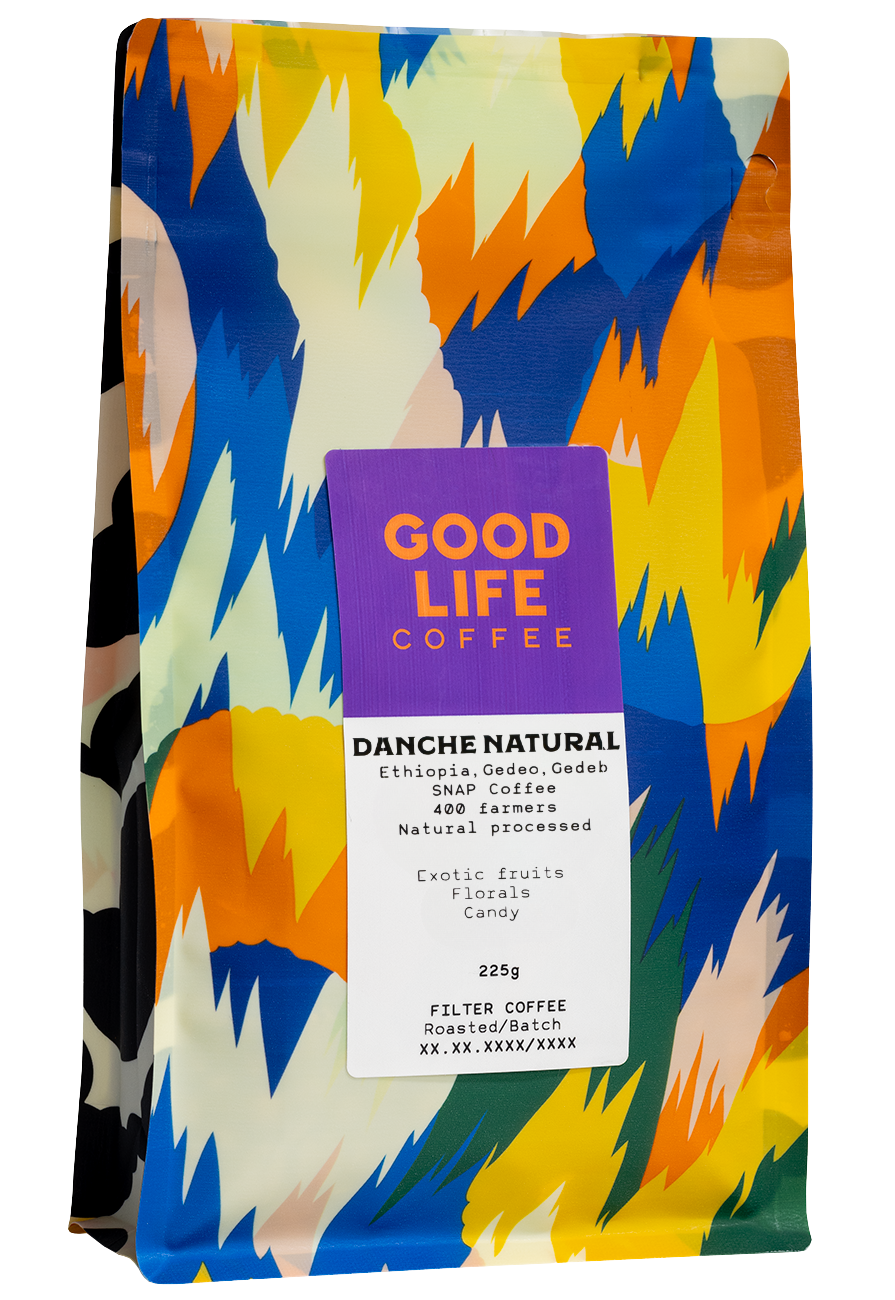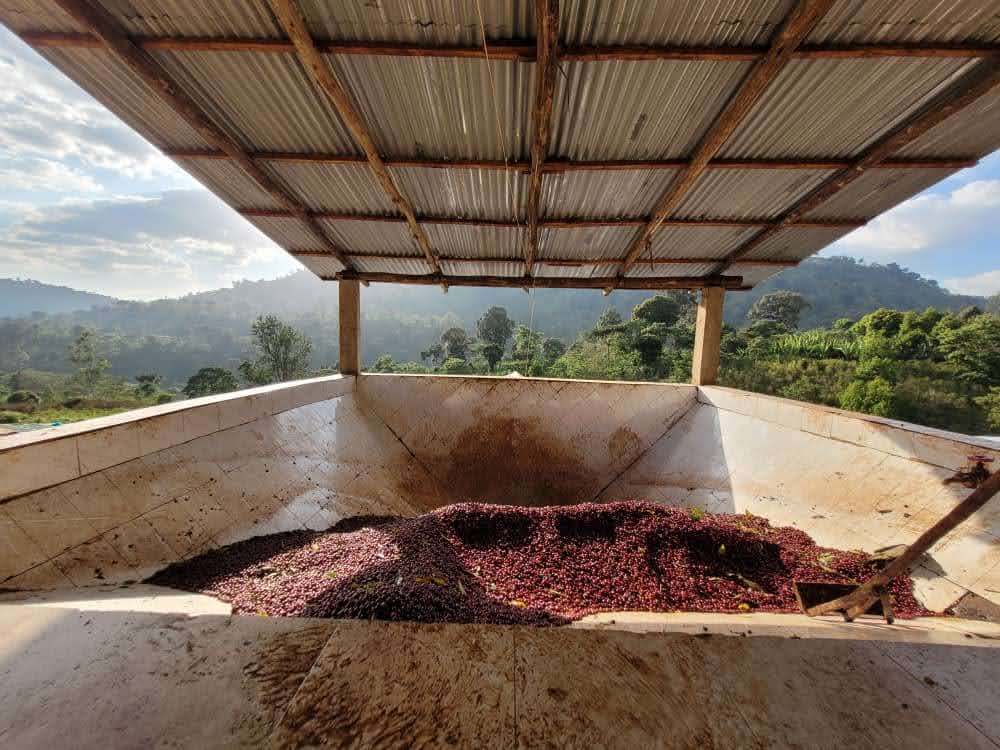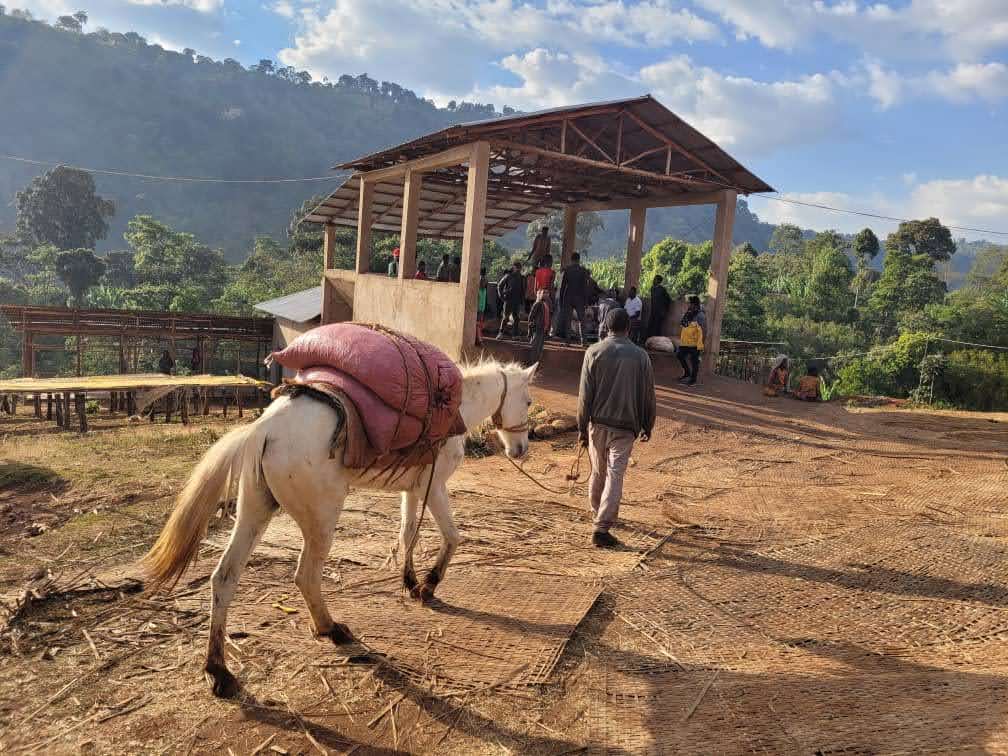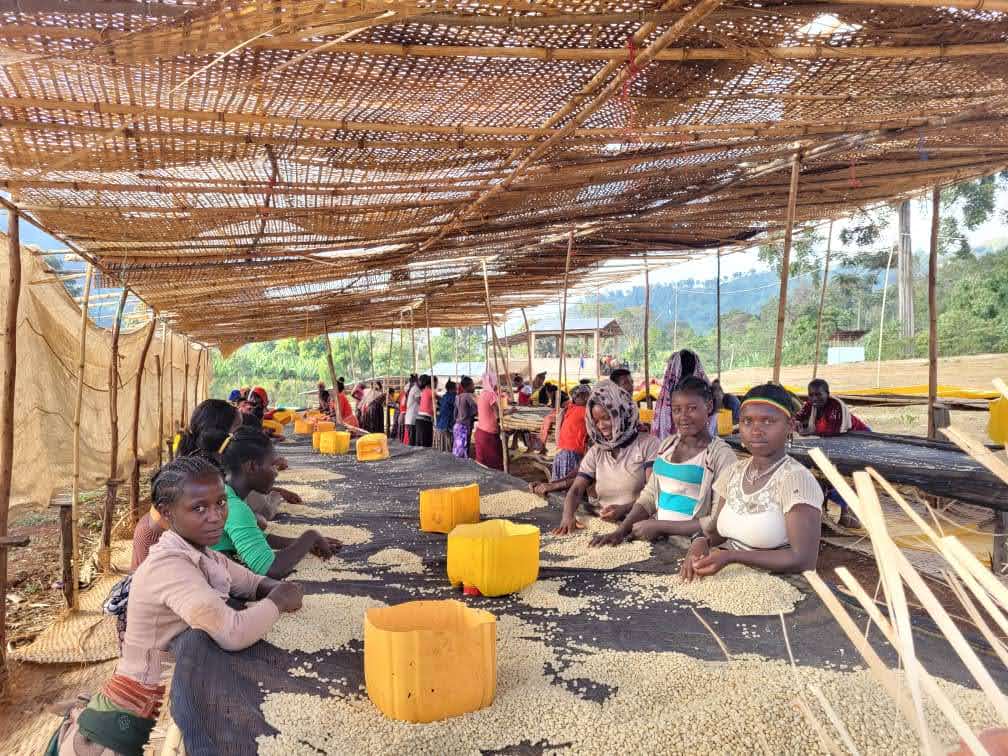



Good Life Coffee
DANCHE NATURAL, ETHIOPIA - FILTER COFFEE
Country: Ethiopia
Field: Gedeo, Gedeb
Producer: 400 smallfarmers of the area
Processing: Natural
Varieties: Mixed Heirloom
Altitude: 1950-2000m
Harvest: 2025
FOB price: $10,38/kg
A natural-processed version of our best-selling coffee, Danche Washed. This coffee comes from the same Danche washing station, but has been processed using the natural method. It’s anything but lacking in flavour—this is a truly delicious, full-bodied, and sweet cup with candy-like fruitiness, floral notes, and honeyed sweetness.
Grown at elevations between 1,950 and 2,000 meters above sea level, this coffee comes from the Gedeo region, where around 400 smallholder farmers deliver their cherries to the Danche washing station. High altitudes typically correlate with better quality, as the cooler temperatures help slow the maturation of the cherries, allowing for more complex flavours to develop. Although the coffee is grown organically, it cannot be marketed as certified organic due to the roastery lacking the required certification.
The Gedeo region is known for its rich soil, which supports healthy yields. The small farms in the area are typically 1–2 hectares in size, with 1,800–2,400 coffee trees per hectare, each producing roughly 3 kg of cherries. After harvesting the ripe cherries, farmers bring them to Danche, where they are hand-sorted and floated to remove defective cherries. The coffee is then dried whole for 2–3 weeks, during which further manual defect removal takes place. In the natural process, the fruit is only removed after drying, resulting in a sweeter, fruitier profile.
The Danche washing station is owned by SNAP Coffee, founded in Addis Ababa in 2008. SNAP is a company focused on high-quality specialty coffee and operates three washing stations in Chelelektu in the Gedeo region, as well as two partner stations in Uraga and Nensebo. SNAP has three core principles: to produce consistently high-quality specialty coffee, to transfer knowledge and skills to the small farmers they work with, and to promote waste recycling. In addition, they invest in the community by supporting schools and building roads.
